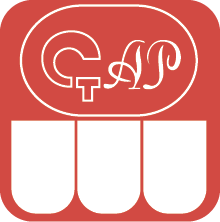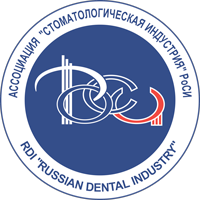DOI:
10.37988/1811-153X_2023_4_172Evaluation of the microbiological effectiveness of a hygienic means for the care of facial prostheses
Downloads
Abstract
To date, the need for patients in orthopedic dental treatment of congenital and acquired defects and deformities of the maxillofacial region is still high. Today, digital technologies are widely used to create facial epithets, including additive 3D printing technologies with new construction materials. However, until recently, the range of prosthetic care products was limited only to traditional dental prostheses for the oral cavity, which prompted the development of special hygiene products. Aim: to determine the adhesion of the pathogenic microflora of the oral cavity to the structural material used in the production technology of facial prostheses by volumetric printing, after treatment with hygienic means for their care.Materials and methods.
the evaluation of the microbiological effectiveness of the proposed compositions of hygiene products was carried out in an experiment. The adhesion of strains of microorganisms Escherichia coli, Staphylococcus aureus, Candida albicans, Streptococcus mutans to structural material samples made on a 3D printer by volumetric printing without treatment with cleansing foam and spray and after treatment for two minutes was evaluated.
Results.
The results of the study showed that all the studied conditionally pathogenic microorganisms have low adhesive activity in relation to the structural material for facial epitheses made by 3D volumetric printing, and after processing the samples with hygienic foam, a zero adhesion index was noted (p<0.05). When treating the surface of the samples with an indelible hygienic spray for 2 minutes, the adhesion of S. mutans to the material decreased by 25%, S. aureus — by 8.91%, C. albicans — by 100%, and the adhesion of E. coli increased by 26.6% compared to samples without additional treatment.
Conclusions.
The studied hygiene products in the form of foam and spray for the care of facial epitheses made by 3D volumetric printing are effective against opportunistic microorganisms Escherichia coli, Staphylococcus aureus, Candida albicans and Streptococcus mutans significantly reduce their adhesion index to the surface of the material.
Key words:
cleansing foam for facial prostheses, cleansing spray for facial prostheses, hygiene products, facial epithets, adhesion of microorganismsFor Citation
[1]
Apresyan S.V., Stepanov A.G., Giesinger O.A., Igumnov A.I., Velmakina I.V., Goryainova K.E., Moskovetc O.O. Evaluation of the microbiological effectiveness of a hygienic means for the care of facial prostheses. Clinical Dentistry (Russia). 2024; 26 (4): 172—177. DOI: 10.37988/1811-153X_2023_4_172
References
- Arutyunov S.D., Leontiev V.K., Tsimbalistov A.V., Drobyshev A.Yu., Bardenshtein L.M., Kharazyan A.E., Raputa A.C., Tsarev V.N. Occupational risks in the rehabilitation of patients with acquired defects of the face and jaw (review of literature). Challenges in Modern Medicine. 2020; 2: 285—303 (In Russian). eLIBRARY ID: 43950370
- Krokhmal S.V., Karpov A.S., Raevskaya A.I., Kaloev A.D., Apaguni A.E., Shevchenko P.P. Factors leading to the occurrence of maxillofacial injury and its complications. Modern Problems of Science and Education. 2020; 5: 146 (In Russian). eLIBRARY ID: 44170954
- Kaprin A.D., Starinsky V.V., Petrova G.V. Malignant neoplasms in Russia in 2016. Moscow: P.A. Herzen Moscow State Medical Research Institute, 2018. P. 19—23 (In Russian).
- Gastaldi G., Palumbo L., Moreschi C., Gherlone E.F., Capparé P. Prosthetic management of patients with oro-maxillo-facial defects: a long-term follow-up retrospective study. Oral Implantol (Rome). 2017; 10 (3): 276—282. PMID: 29285330
- Grebnev G.A., Bagnenko A.S., Moskvin G.V. Additive technologies in personalized dentistry and maxillofacial surgery. Russian Military Medical Academy Reports. 2019; 2: 20—24 (In Russian). eLIBRARY ID: 42662148
- Apresyan S.V., Stepanov A.G., Antonik M.M. Integrated digital planning of dental treatment. Moscow: Mozartika, 2020. Pp. 376—391 (In Russian).
- Apresyan S.V., Stepanov A.G., Retinskaya M.V., Suonio V.K. Development of complex of digital planning of dental treatment and assessment of its clinical effectiveness. Russian Journal of Dentistry. 2020; 3: 135—140 (In Russian). eLIBRARY ID: 44005658
- Apresyan S.V., Stepanov A.G., Vardanyan B.A. Digital protocol for comprehensive planning of dental treatment. Clinical case analysis. Stomatology. 2021; 3: 65—71 (In Russian). eLIBRARY ID: 46222733
- Apresyan S.V., Suonio V.K., Stepanov A.G., Kovalskaya T.V. Evaluation of functional potential of CAD-programs in integrated digital planning of dental treatment. Russian Journal of Dentistry. 2020; 3: 131—134 (In Russian). eLIBRARY ID: 44005657
- Farook T.H., Jamayet N.B., Abdullah J.Y., Rajion Z.A., Alam M.K. A systematic review of the computerized tools and digital techniques applied to fabricate nasal, auricular, orbital and ocular prostheses for facial defect rehabilitation. J Stomatol Oral Maxillofac Surg. 2020; 121 (3): 268—277. PMID: 31610244
- Antonova I.N., Kalakutskii N.V., Veselova K.A., Kalakutskii I.N., Gromova N.V. Properties of materials for craniofacial prostheses. The Dental Institute. 2019; 1 (82): 94—97 (In Russian). eLIBRARY ID: 39154490
- Artioli B.O., Kunkel M.E., Mestanza S.N. Feasibility study of a methodology using additive manufacture to produce silicone ear prostheses. In: proceedings of the “World Congress on Medical Physics and Biomedical Engineering”, 2018. Prague: Springer, 2019. Pp. 211—215. DOI: 10.1007/978-981-10-9023-3_38
- Polyakov D.I., Tsarev V.N., Ippolitov E.V., Muslov S.A., Kharakh Y.N., Arutyunov S.D. Clinical and microbiological aspects of the auricle prosthetic reconstruction. Parodontologiya. 2021; 4: 327—333 (In Russian). eLIBRARY ID: 47596094
- Mehta S., Nandeeshwar D.B. A spectrophotometric analysis of extraoral aging conditions on the color stability of maxillofacial silicone. J Indian Prosthodont Soc. 2017; 17 (4): 355—360. PMID: 29249879
- Ariani N., Vissink A., van Oort R.P., Kusdhany L., Djais A., Rahardjo T.B., van der Mei H.C., Krom B.P. Microbial biofilms on facial prostheses. Biofouling. 2012; 28 (6): 583—91. PMID: 22703052
- Shishkova Y.S., Dolgushin I.I., Kolesnikov O.L., Lipskaya A.D. The functional status of neutrophils during interaction with microorganisms with varying degrees of bioincubation. Russian Journal of Immunology. 2016; 3 (19): 370—372 (In Russian). eLIBRARY ID: 32775005
- Fomina K.A., Polushkina N.A., Chirkova N.V., Kartavtseva N.G., Vecherkina Zh.V. Preventive measures hygienic care of removable dentures of thermoplastic polymers (literature report). Journal of New Medical Technologies. 2017; 3: 211—216 (In Russian). eLIBRARY ID: 30016400
- Apresyan S.V., Stepanov A.G., Abramov A.Yu., Matelo S.K., Igumnov A.I., Apresyan S.S. Cleansing foam for surface treatment of facial prostheses. Patent RU No. 2800281, effective from 07/19/2023 (In Russian).
- Apresyan S.V., Stepanov A.G., Abakarov S.I., Reshetov I.V., Matelo S.K., Igumnov A.I., Verkhovsky A.E. Composition for the care of facial prostheses. Patent RU 2799937, effective from 07/14/2023 (In Russian).
- Shtakh A.F., Mitrofanova N.N., Boyarchenko E.M. Physiological features of the microbial association target for effective etiotropic therapy (literature review). University Proceedings. Volga region. Medical sciences. 2022; 4 (64): 125—143 (In Russian). eLIBRARY ID: 50296788
Downloads
Received
August 28, 2023
Accepted
November 9, 2023
Published on
January 16, 2024









